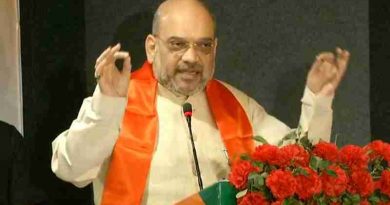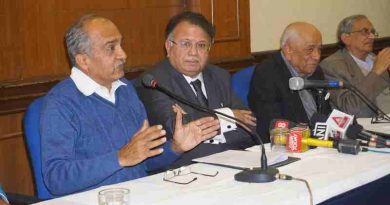Everything You Wanted to Know About the Waqf Amendment Act 2025: FAQs

Everything You Wanted to Know About the Waqf Amendment Act 2025: FAQs
Everything You Wanted to Know About the Waqf Amendment Act 2025: Its passage, government aims, and the widespread opposition leading to Supreme Court challenges.
Frequently Asked Questions: Waqf Amendment Act, 2025. Waqf is also written as Wakf
By RMN News Service
1. What is the Waqf Amendment Act, 2025, and what is its primary aim according to the government?
The Waqf Amendment Act, 2025, is a piece of legislation passed by the Indian Parliament and assented to by the President on April 5, 2025. According to the ruling National Democratic Alliance (NDA) government, its primary aim is to bring transparency, prevent favouritism and misuse of Waqf properties, and address encroachments on these assets. The government maintains that the law will benefit Muslim women and ensure better management of Waqf properties by making Waqf boards accountable.
2. Why are several opposition parties, including RJD, Congress, AIMIM, and AAP, opposing the Waqf Amendment Act?
Several opposition parties are opposing the Act because they believe its provisions could seriously impact the administration of Waqf properties and are discriminatory towards the Muslim community.
Their petitions filed in the Supreme Court contend that the bill unfairly singles out the Muslim community by introducing restrictions not imposed on other religious endowments and violates fundamental rights guaranteed under the Indian Constitution, including the right to equality (Article 14), freedom to practice religion (Article 25), freedom to manage religious affairs (Article 26), minority rights (Article 29), and the right to property (Article 300A).
3. What legal action have opposition parties taken against the Waqf Amendment Act?
Opposition parties, including the Congress (through MP Mohammad Jawed), AIMIM (through MP Asaduddin Owaisi), and AAP (through MLA Amanatullah Khan), have filed separate petitions in the Supreme Court challenging the Waqf Amendment Act, 2025. The RJD has also announced its intention to move the Supreme Court, with Rajya Sabha MP Manoj Jha and party leader Fayaz Ahmed set to file a petition.
4. What are the main arguments presented by the opposition parties in their petitions against the Act?
The main arguments presented by the opposition parties in their petitions include the claims that the Waqf Amendment Act is discriminatory towards the Muslim community, constitutes a blatant violation of their fundamental rights, curtails the religious and cultural autonomy of Muslims, enables arbitrary executive interference, and undermines minority rights to manage their religious and charitable institutions. They argue that the Act imposes restrictions specifically on Muslim endowments that are not applied to other religious trusts.
5. What was the process by which the Waqf Amendment Bill was passed in the Indian Parliament?
The Waqf Amendment Bill, 2025, was passed by both Houses of Parliament after heated debates. The Lok Sabha passed the bill with 288 members voting in favour and 232 opposing it. The Rajya Sabha passed the bill later with 128 votes in favour and 95 against. The Mussalman Wakf (Repeal) Bill, 2024, was also passed during the same parliamentary session. The government notification stated that the President gave her assent to the bill on April 5, 2025, after which it became law.
6. What is the stance of the All-India Muslim Personal Law Board (AIMPLB) on the Waqf Amendment Act?
The All-India Muslim Personal Law Board (AIMPLB) is also strongly opposing the Waqf Amendment Act. They have announced nationwide protests and campaigns under the slogan ‘Save Waqf, Save Constitution’ to counter what they perceive as misinformation about the Act and to promote peaceful activism against it, indicating their deep concern over the legislation’s potential impact on Waqf properties and Muslim personal law.
7. How has the government responded to the opposition’s concerns regarding the Waqf Amendment Act?
The government, through BJP leaders like Ravi Shankar Prasad, has defended the Waqf Amendment Act by stating that it is not anti-Muslim and aims to bring transparency and accountability to Waqf boards. They have sought to allay fears that the law would lead to the seizure of Waqf properties, specifically mentioning that mosques and graveyards will not be affected. The government also highlighted that the amendment was introduced after six months of discussions, including a review by a Joint Parliamentary Committee.
8. What are Waqf properties and why is their administration a significant issue?
Waqf properties are religious or charitable endowments made by Muslims for religious, pious, or charitable purposes. Their administration is a significant issue because these properties often involve substantial assets and play a crucial role in supporting various community activities, religious institutions, and charitable works within the Muslim community.
Ensuring their proper management, preventing misuse, and protecting them from encroachment are vital for upholding the intentions of the donors and benefiting the intended beneficiaries. The controversy surrounding the Waqf Amendment Act highlights differing perspectives on how best to achieve these goals.
💛 Support Independent Journalism
If you find RMN News useful, please consider supporting us.




